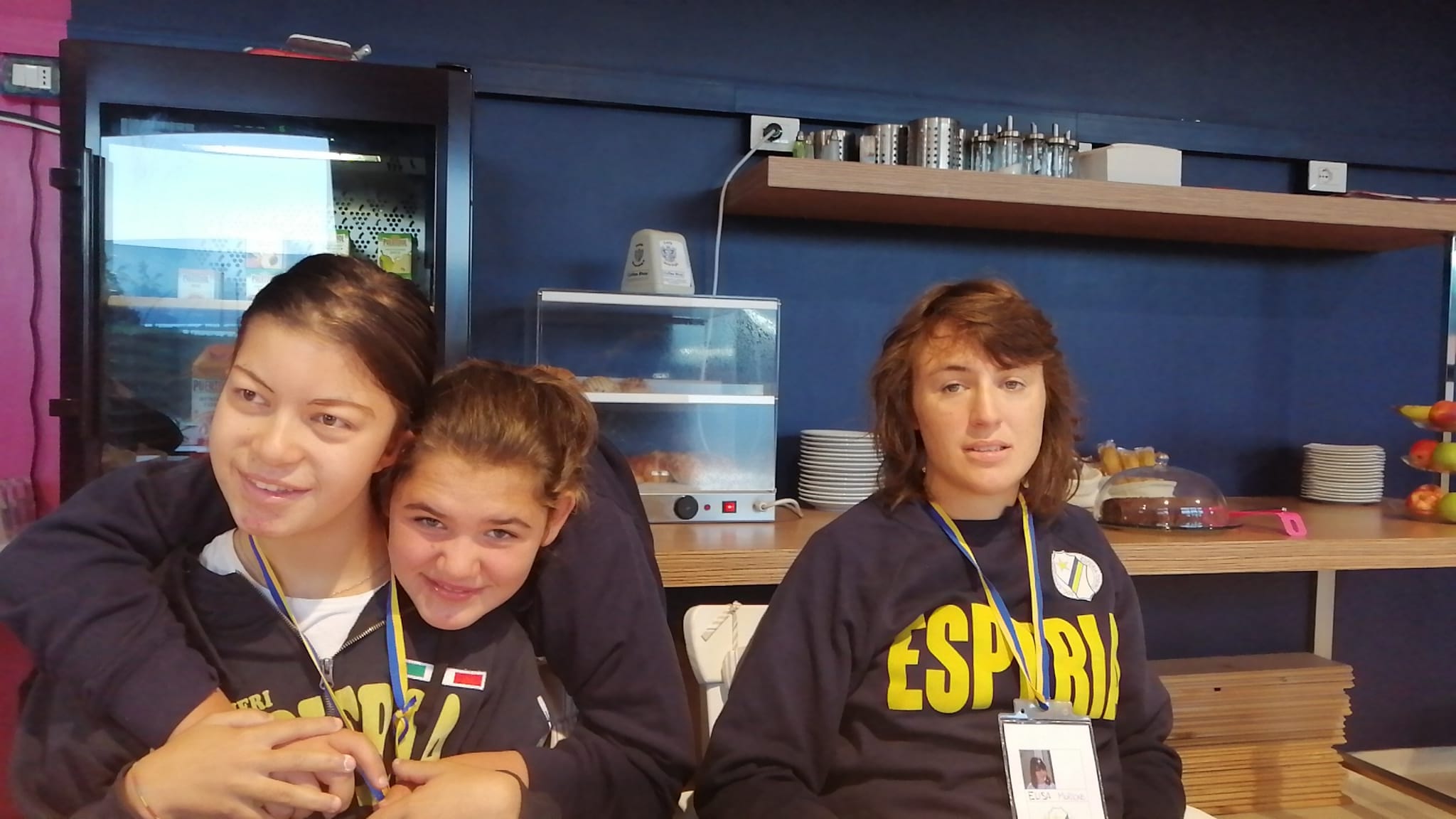
SOCIETÀ CANOTTIERI ESPERIA TORINO
Francesca Grilli
My name is Francesca Grilli and I’m a Disability Manager at the Società Canottieri Esperia - Torino, a rowing club in Turin. The club is well-known in the field of rowing and other sports. I began this adventure in September 2019, at the invitation of the president of the club, Luca Calabrò, who created the impetus for the creation of an inclusive project.
Why Disability Management in sports? Because within the context of sports, Disability Management helps us to manage things and acts as a catalyst: managing involves coordinating, which is necessary to take care of people and facilitate the teaching of attitudes that lead to personal growth through concrete examples, and by practicing a sport. It also involves scheduling, which considers individual capabilities, personalising the training as much as possible and considering each individual’s essential needs. Furthermore, it brings together and analyses all the available information to guarantee that all athletes are equalised, with the simple objective of being able to train together. The catalyst for these educational activities is rowing, which makes it possible to shift the focus from disability (autism, a cognitive delay, injuries or impairments) to ability; from being disadvantaged to being an athlete: the individual is engaged in an effort to improve themselves and to reach objectives. Setting up an activity that combines the objectives described above without making compromises in terms of the intensity of performance – competitive or recreational – requires a daily imaginative effort.
The daily reality of an individual’s issues are the starting point for this exercise, given that it is the very characteristics of the disability that an individual’s relationship with learning is contingent on, and that will set the limits for each athlete’s personal growth. Coaches must constantly remind themselves that the goal is always to enable the athlete to organise their skills themselves and not merely to achieve competitive objectives. In rowing, any athlete must be capable of expressing themselves either individually (in a single scull) or as part of a crew (made up of 2, 4 or 8 people). Athletes put their own abilities to the test, growing increasingly aware of their inner and physical strength, of their capacities and their limits. For the last year, for example, V. has been an athlete with the Canottieri Esperia - Torino. V. rows well, is 15 years old and has a cognitive delay; she’s verbal (can express herself with words) but cannot read or write. She recognises some numbers, doesn’t have laterality and is not self-sufficient. She is good at relationships and in just a few months has become the leader of a group of athletes with intellectual disabilities: girls between the ages of 15 and 23 who are autistic, have cognitive delays of varying degrees of severity, and with different abilities. Some of them have more advanced cognitive abilities than she does, such as being able to read, write, speak English or use a computer. One of them has a job. When V. is with the girls’ group or in the team with the boys, she is not self-sufficient in terms of making decisions, working on the tasks she has been set, or regulating the intensity of the training. She always needs someone to guide her and be a point of reference. This apparent disadvantage, however, does not compromise her position: V. is a leader, and the rowing team enables her to experience and confirm her leadership: when she goes out in single sculls alongside the other athletes, or the coaches on the safety motorboat, V. learns to take care of herself; she works to figure out the right direction, practices how to pass under bridges and experiments with the correct use of one or the other hand to move around without colliding or falling into the water. V. is doing these things in a protected environment, but outside of her comfort zone. Through commitment and a feeling of satisfaction, she experiences and enjoys autonomy.
Back on land, the team collaborates to repair the boats and equipment: this additional activity is a continuation of practicing a sport and is complemented by opportunities to socialise in the changing room. The presence of multiple different disabilities in this athletic relationship facilitates peer education. The playful but coordinated context of team sports allows athletes to compare themselves to each other and understand and overcome any gaps through reciprocal exchanges. With its playful background and its challenging technical movements, rowing is an ideal sport to spur athletes on to find their place in a team and better understand themselves. By learning how to organise these technical skills and movements, the individual's unimpaired and residual skills are enhanced in relation to their community.
Parallel to teaching the technical skills involved in rowing, para-rowing coaches at Esperia - Torino informally share the social rules that are typical of rowing, such as the use of gear, which comes in different sizes and is for various uses (boat and oars), and help athletes develop a sense of responsibility towards the equipment. A sense of self-sufficiency is developed through the ability to use resources and engage in the behaviours necessary to manage one’s own social and physical life. Soon after our adventure with Canottieri Esperia - Torino began, our lives were unexpectedly turned upside down by the pandemic. In spite of this, our project has continued to advance systematically, as all the components have continued to develop: infrastructure, staff training and partnerships with supporters. The team itself has also continued to grow and now numbers 18. The objective of the project is to enrich the Esperia club, transforming it into a meeting place for people with disabilities and a point of reference for the centre of Turin.